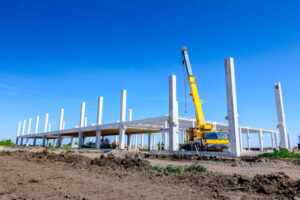The dream of owning a home has long been ingrained in the cultural fabric of many societies. For decades, the idea of homeownership has been synonymous with stability, financial success, and the fulfilment of the American dream. However, as the landscape of real estate evolves and economic factors fluctuate, the question arises: Is homeownership still worth it? In this article, we will delve into the pros and cons of owning a home, examining the various aspects that potential homeowners should consider before taking the plunge into the real estate market.
Pros of Homeownership:
 (Photo from iStock)
(Photo from iStock)
- Equity Building: One of the primary advantages of owning a home is the opportunity to build equity. Unlike renting, where monthly payments contribute solely to the landlord’s income, mortgage payments gradually increase your stake in the property. As property values appreciate over time, homeowners can accrue substantial equity, providing a valuable asset that can be leveraged for future investments or financial emergencies.
- Stability and Community Connection: Homeownership often fosters a sense of stability and community connection. Knowing that you have a place to call your own can bring a sense of security and permanence, providing a stable environment for families to grow and thrive. Homeowners are also more likely to engage with their communities, contributing to the development and well-being of the neighborhood.
- Personalization and Control: Owning a home allows for greater personalization and control over living spaces. Homeowners have the freedom to make structural changes, decorate, and invest in home improvements without seeking permission from a landlord. This autonomy enables individuals to create a living space that aligns with their unique preferences and lifestyle.
- Tax Benefits: Homeownership comes with certain tax advantages. Mortgage interest and property tax payments are often deductible, providing homeowners with potential tax savings. These incentives can significantly reduce the overall cost of homeownership, making it a financially attractive option for many.
- Potential for Rental Income: Homeownership can be a source of passive income through renting out a portion of the property. Whether it’s a spare room, a basement, or an accessory dwelling unit, homeowners have the option to generate additional income, helping offset mortgage costs and contribute to overall financial stability.
Cons of Homeownership:
- Financial Commitment and Upfront Costs: While homeownership offers long-term financial benefits, it requires a substantial upfront investment. Down payments, closing costs, and ongoing maintenance expenses can be significant barriers for potential homeowners. The financial commitment involved may strain the budgets of some individuals and families.
- Market Fluctuations and Property Values: Real estate markets are subject to fluctuations, and property values can vary based on economic conditions. Homeowners may experience periods where the value of their property decreases, leading to potential financial losses. Market volatility can impact the perceived value of homeownership as an investment.
- Responsibility for Maintenance and Repairs: Unlike renting, where landlords handle maintenance and repairs, homeowners are solely responsible for the upkeep of their properties. Maintenance costs, unexpected repairs, and renovations can strain both time and finances, adding an additional layer of responsibility to homeownership.
- Limited Flexibility and Mobility: Owning a home can limit flexibility and mobility, especially for those who need to relocate for work or personal reasons. Selling a home can be a time-consuming process, and market conditions may not always align with the homeowner’s timeline, potentially leading to financial and logistical challenges.
- Interest and Insurance Costs: While mortgage interest may offer tax benefits, the overall interest paid on a home loan can be substantial over the life of the mortgage. Additionally, homeowners must budget for property insurance, further increasing the overall cost of homeownership.
The Evolving Landscape of Homeownership:
 (Photo from iStock)
(Photo from iStock)
As societal norms shift and economic landscapes evolve, the concept of homeownership undergoes continuous transformation. The rise of remote work, changing attitudes towards long-term commitments, and the advent of innovative housing solutions contribute to a dynamic housing market. The emergence of co-living spaces, rent-to-own models, and shared equity arrangements challenges traditional notions of homeownership, offering alternatives that cater to the evolving needs of the modern individual.
Navigating the Decision-Making Process:
To navigate the decision-making process, potential homeowners must conduct a comprehensive analysis of their financial health and lifestyle aspirations. Financial literacy plays a crucial role in understanding the true cost of homeownership, including mortgage payments, property taxes, and maintenance expenses. Additionally, keeping abreast of market trends and seeking guidance from real estate experts can empower individuals to make informed decisions that align with their unique circumstances.
Balancing Financial Considerations with Emotional Value:
Ultimately, the worth of homeownership extends beyond mere financial calculations. Emotional and psychological considerations, such as the desire for stability, community connection. And the pride of ownership, play a pivotal role in the decision-making process. Striking a balance between financial prudence and personal fulfilment is key to ensuring that homeownership remains a rewarding and sustainable venture.
Conclusion:
The decision of whether homeownership is worth it depends on various factors, including individual financial situations. Lifestyle preferences, and long-term goals. While homeownership has its advantages, such as equity building, stability, and tax benefits. Potential downsides, including financial commitments, market fluctuations. And limited flexibility, must be carefully considered.
For some, the emotional and psychological benefits of owning a home outweigh the financial considerations. The sense of pride, stability, and the opportunity to create a personalized living space can be invaluable. However, for others, the flexibility and lower financial commitment associated with renting may align better with their lifestyle and goals.
Ultimately, prospective homeowners should conduct a thorough assessment of their financial readiness, long-term plans. And personal preferences before making the decision to buy a home. Consulting with financial advisors and real estate professionals can provide valuable insights. And guidance in navigating the complex landscape of homeownership. In the end, the worth of homeownership is a subjective judgment that varies from person to person. And careful consideration of both the pros and cons is essential to making an informed choice.




